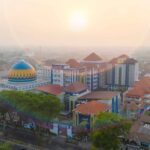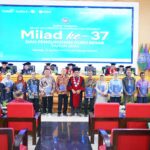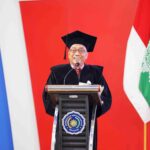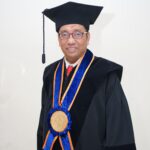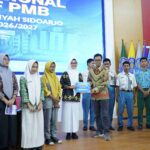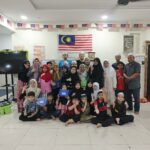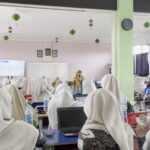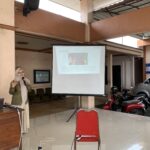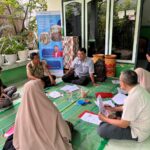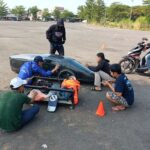[:id]Umsida.ac.id – Rancangan Undang-Undang tentang Sumber Daya Air (RUU SDA) yang diinisiasi DPR dinilai memiliki semangat anti industri, menutup ruang berkembangnya usaha baru masyarakat, dan terlalu over control oleh pemerintah. Maka, dengan kondisi tersebut, Lembaga Konsultan Bantuan Hukum (LKBH) Umsida bersama Prodi Hukum Umsida, PDPM Mojokerto, dan PDPM Sidoarjo adakan diskusi publik Majelis Pengkajian Peradaban dan Konstitusi (MKPK) di ruang rapat Kampus 1 Umsida, Sabtu (12/10).
Memandang perlunya kajian lebih lanjut guna mencermati RUU SDA terkait prospek tata kelola Sumber Daya Alam Indonesia di era kedua pemerintahan Joko Widodo tersebut, Dr Nyong ETIS M Fil I selaku salah satu pembicara dalam diskusi publik menyampaikan bahwa SDA tidak dapat dimiliki atau dikuasai oleh kelompok perorangan, kelompok masyarakat, atau badan usaha,
“Bahwa hak rakyat bukanlah kepemilikan, tetapi hak untuk memperoleh, menggunakan, atau mengusahakan sejumlah kuota sesuai alokasi yang ditetapkan oleh pemerintah (pasal 8),” tutur dosen FAI.
Serta alasan gugatan UU 7/2004 bahwa terjadi privatisasi terselubung yang menguasai hajat hidup orang banyak serta bentuk lepas tanggungjawab pemerintah secara mutlak terhadap penyediaan air minum untuk rakyat kian menguat.
“Jika RUU SDA ini didesakkan untuk diundangkan tanpa meninjau kembali keberpihakannya kepada kepentingan yang lebih besar, rakyat, dan negara. Maka, RUU SDA ini patut ditolak,” pungkasnya. (erika/rizki)[:en]Umsida.ac.id – The Draft Law on Water Resources (RUU SDA) initiated by the DPR is considered to have an anti-industry spirit, closing the space for developing new business ventures, and being too over-controlled by the government. So, with these conditions, the Legal Aid Consultant Institute (LKBH) Umsida together with Umsida Law Study Program, PDPM Mojokerto, and PDPM Sidoarjo held a public discussion on the Civilization and Constitutional Review Council (MKPK) in the Umsida Campus 1 Conference Room, Saturday (12/10).
Looking at the need for further studies to examine the SDA Bill related to the prospects for governance of Indonesian Natural Resources in the second era of Joko Widodo’s administration, Dr. Nyong ETIS M Fil I as one of the speakers in a public discussion said that natural resources cannot be owned or controlled by individual groups, community groups, or business entities,
“That the people’s right is not ownership, but the right to obtain, use, or work out a number of quotas according to the allocation determined by the government (article 8),” said FAI lecturer.
As well as the reasons for the lawsuit of Law 7/2004 that there is a covert privatization that controls the lives of many people and forms an absolute release of government responsibility for the supply of drinking water for the people.
“If the SDA Bill is urged to be enacted without revisiting its alignments to the greater interests, people, and the state. Then, this SDA Bill should be rejected,” he concluded. (erika/rizki)[:]

